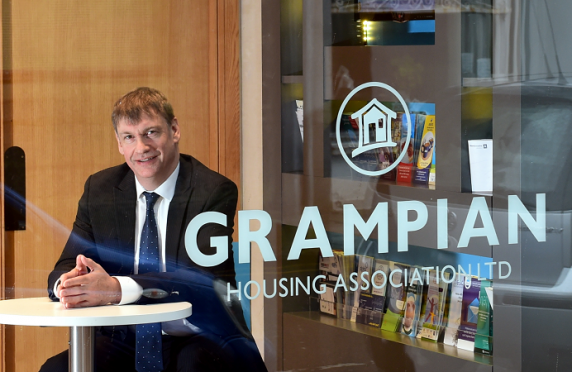Decades in search of a glimpse, all those special boat trips from Mull and Skye, the hours standing on Chanonry Point on the Black Isle, and all for nothing, nada, zilch.
Then on Sunday I was inspecting a roof and worrying about rusting gutters when I saw them, a pod of dolphins, in a line.
Some leapt and played, others grouped in a circle and started feeding, in moments the North Sea had turned into a motorway for cetaceans.
All I had to do was to move to a place with a different view. It made you glad to live in the north-east. Then they were gone.
My thoughts of early 2017 are maudlin enough for me to want to join the dolphins at play : omni-shambles Brexit, renewed austerity, Trump’s cabinet, need I go on? Then social media stepped in.
From U-Lab Scotland came an invitation to join Kinder Scotland 2017; a 21 day challenge to carry out a daily act of kindness. I shared it around the office and a wheezing colleague gave me his last Strepsil, and over the week there were many little gestures witnessed, and third-hand stories of what others had done.
You might consider this very pretentious and all that behaviour very faux-saintly, but I do feel the office has warmed up, and not in a catastrophic, end of days, climate change sort of way.
I don’t suppose this is going to go down well in the hard-nosed business world, outside of some edgy tech start up. Ask yourself, what is it that makes it possible for humans to collaborate and interact in large numbers?
In “Sapiens”, the factual (mostly) story of how we got here, author Yuval Harari describes us as the story telling ape, and explains how believing in myths and memes has overcome the barriers between our bands of hairless apes, and helped create organisation, capitalism, science, religion and the X-Factor. I appreciate that not all of what we do collectively is for the common good, but the enormity of it.
So what’s my point? These little bits of kindness were shared and built trust, within teams, between colleagues in different departments, even with the CEO.
The small acts were making us all better connected. It reminded me of the story of the rise of Quaker business empires in the 19th century: banking – Lloyds and Barclays, all those chocolate potentates – Cadbury, Rowntrees, Fry and Terry, and pioneers and entrepreneurs in steel and rail.
There are various explanations for their success, but one is that they could be trusted. Such a vital ingredient, not just for teams but at all levels and between competitors as well as collaborators.
It’s easier to trust your family, unconditional love and all that, but being open and co-operative with people you hardly know is a big hairy ask.
And in work, the housing association is going through some big changes, some scary. What we are investing in digitally will change some roles completely, old functions will end.
Someone even asked if we really needed a CEO. But we trust each other to do the right thing and protect staff. Unlike some sectors like energy, we have the luxury of growth, where the charity faces ever increasing challenges and demands in other areas to compensate.
Our businesses and our employees must adapt, but they have a safe place to do it. I have heard so many horror stories about the treatment of staff in other sectors as market share plummets or contracts end. How is that going to end?
Ultimately what makes Grampian’s changes bearable as well as exciting is a shared belief in that artificial and vital creation “the housing charity” and the trust we can see demonstrated by random and organised acts of kindness.
